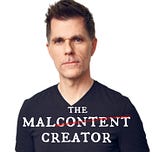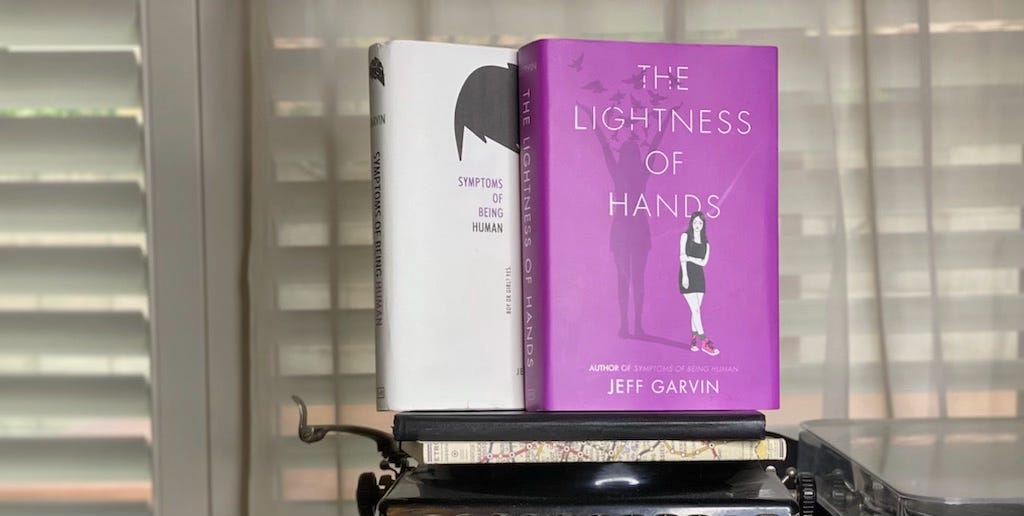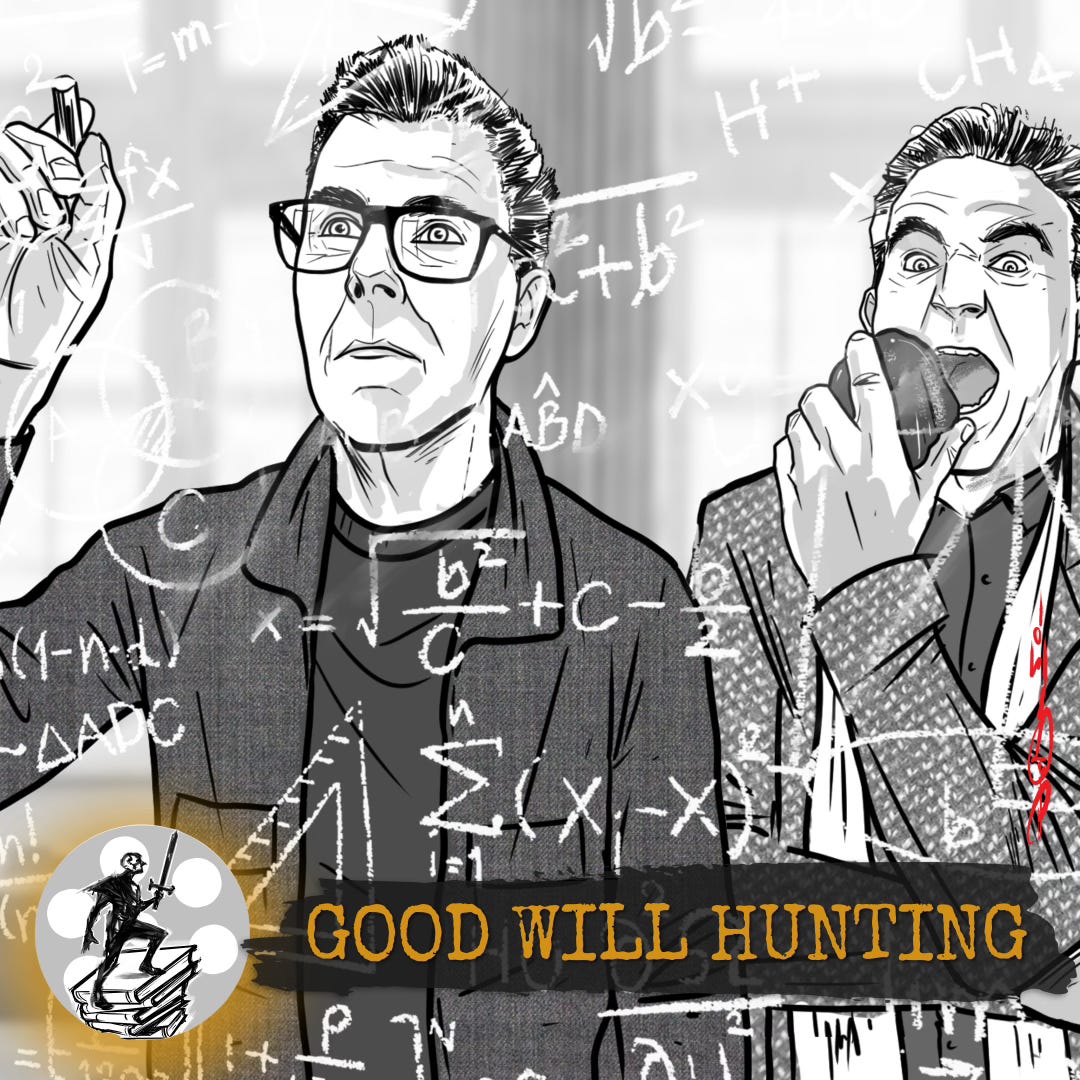I’ve been working on the same manuscript for three years. I’m having a good time writing it, but when I’m not at the keyboard, I’m wrestling the doubt monster, as I always do. I worry whether this book is any good. Whether I’ve wasted three years of my life writing it.
Whether it’s “publishable.”
The pressure to write something “publishable” can crush creativity. Perhaps that’s why my second book, The Lightness of Hands, took so long to find. I say “find” because it didn’t take that long to write — less time than Symptoms of Being Human — but to find it, I had to write two other novels between, novels which will probably never be published. I’ve rationalized that invisible-to-the-public work by clinging to the idea that it made me a better writer. I hope that’s true, but it doesn’t really matter. The only thing worse than wasting time is wasting more time fretting about having wasted it.
The only thing worse than wasting time is wasting more time fretting about having wasted it.
The problem with trying to write something publishable is that I can’t tell whether it’s publishable until I’ve written and then tried to publish it. For me, at least, publishable isn’t so much a target as it is a fantasy I torture myself with. I’m good at self-torture. They tell me that’s part of being a writer. Great.
But some writers appear to have a sixth sense that leads them inexorably from one bestseller to the next. I frequently compare myself to those book-a-year wonders. Stephen King. Michael Connelly. People from my debut year who are infuriatingly good looking, charming, and down-to-earth (you know who you are.) I wonder why I’m so slow, or lazy, or why they got all the talent, or how lucky they are not to have the obligations I have. Never mind their troubles, their reality, their doubts. Their output is proof that they are better than me, and that gives me the right to envy and resent them. Which, while deeply satisfying, does nothing to help me write more publishable books.

It’s unfair that we never hear about the books that languish in drawers or filing cabinets or flash drives or floppy disks. Why must their relatable, flawed writers deprive us of the life-giving schadenfreude their confessions would provide? If you’re one of these, and you’re reading this, shame on you.
No one shares about the books they spent years revising and never got published. Or, maybe they do, and I just never went looking for that information. If I had, would I have found it comforting or discouraging? I’d like to say both, but most likely I would have pitied those writers and considered myself above them.
I was a cocky bastard. Publishing has humbled me.
My debut novel, Symptoms of Being Human, made lists and garnered nominations and awards and sold lots of copies. I like that book. I’m proud of it. But the truth is, a large part of its success was due to Good Timing, something I had absolutely nothing to do with. Good Timing was a lesson I could not harness to benefit my career.
My second published novel, The Lightness of Hands, made a list, won an award, and sold very poorly. I like that book. I’m proud of it. And, it just so happened that it hit bookstores in April of 2020, about a month after the Great Lockdown began. Bookstores closed. Publishers panicked. Marketing teams had to focus on their bestsellers because nobody knew when Barnes and Noble was going to open its doors again. So, yeah. My second book suffered from Bad Timing, something I had absolutely nothing to do with. But this lesson did benefit my career:
I learned how little authors have to do with the success or failure of their books once they’re printed. Or, to be humble about it, how little I had to do with mine. 99.999999% of the impact I had on the sales and distribution of my books occurred before I typed THE END.

I love appearing at book festivals, speaking at conferences, participating in panels, doing signings at book stores. I love staying up late on my phone reading five-star reviews. I love posting screenshots of that little orange ribbon on Amazon celebrating my book’s status as “Best Queer Teen Fiction Involving A Character Named Riley Who Runs An Anonymous Blog.” All of that feels incredible.
I hate looking at sales figures for my second book, or counting the number of reviews on Goodreads. I hate that I can quantify its reach by seeing how many times its title has been used as a hashtag. All of that feels terrible.
(And yes, I have done all of these things. I’m not proud of it, but there it is.)
The years since Symptoms published in 2016, and in particular the time since April of 2020 when Lightness hit the shelves of closed bookstores everywhere, have been a crucible for my ego. I’ve been forced to reckon with the reality that I DON’T KNOW WHAT IS PUBLISHABLE. I only know what I like. I only know what I’m compelled to write. I only know what I’m willing to sit down at the keyboard every day and work on. Beyond that, I have no control. I don’t think any writer does.
If you’re enjoying The Malcontent Creator, you may enjoy The Hero's Journey℠ Podcast: a fun, insightful look at stories through the lens of Joseph Campbell’s world-renowned mythological framework, hosted by writers/BFFs Jeff Garvin and Dan Zarzana.











